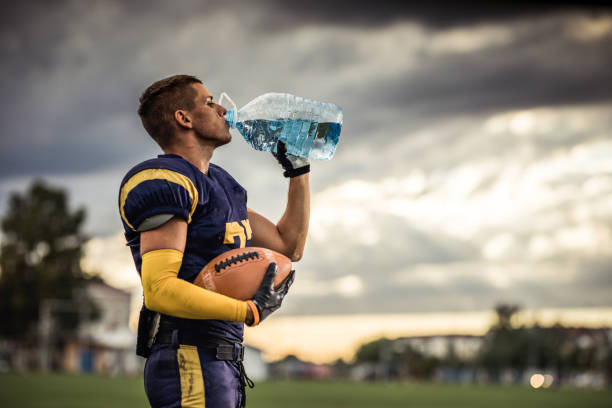Electrolyte Replenishment 101: Understanding the Importance of Balancing Your Body
Electrolytes are essential minerals that conduct electrical impulses in the body. They play a crucial role in maintaining proper hydration, nerve function, muscle contraction, and blood pH levels. When we engage in physical activities or lose fluids through sweating, our body loses electrolytes, which need to be replenished to optimize our overall health and well-being. In this article, we will delve into the significance of electrolyte replenishment and provide you with a comprehensive understanding of how to balance your body effectively.
Why are Electrolytes Important?
Electrolytes are responsible for maintaining the balance of fluids inside and outside our cells. They help regulate the movement of fluids within our body, ensuring optimal hydration levels. Without adequate electrolytes, our cells cannot properly maintain their electrical balance, leading to various health issues.
Furthermore, electrolytes are essential for proper nerve and muscle function. They contribute to transmitting electrical impulses across nerves, allowing our brain to communicate with the rest of our body. Electrolytes also aid in muscle contraction and relaxation, enabling us to perform physical activities efficiently.
Common Electrolytes
Several electrolytes are crucial for our body’s optimal function:
Potassium (K+)
Potassium is essential for maintaining proper nerve and muscle function, regulating heart rhythm, and supporting healthy blood pressure levels. It also helps balance fluids and preserve pH levels in our body.
Sodium (Na+)
Sodium is vital for controlling fluid balance, nerve transmission, and muscle function. It plays a significant role in maintaining blood pressure and pH levels.
Calcium (Ca2+)
Calcium is crucial for the formation and maintenance of strong bones and teeth. It also aids in muscle function, hormone secretion, and blood clotting.
Magnesium (Mg2+)
Magnesium is involved in over 300 biochemical reactions in our body, including muscle and nerve function, blood sugar regulation, and bone health.
Signs of Electrolyte Imbalance
Electrolyte imbalances can occur due to various factors, including inadequate diet, excessive sweating, vomiting, diarrhea, or certain medical conditions. It is important to recognize the signs of electrolyte imbalance to address the issue promptly. Some common symptoms include:
-
- Muscle cramps
-
- Irregular heartbeat
-
- Weakness or fatigue
-
- Headaches
-
- Dizziness
-
- Nausea
-
- Confusion
-
- Numbness or tingling
If you experience these symptoms, it is crucial to consult a healthcare professional for a proper diagnosis and guidance on electrolyte replenishment.
How to Replenish Electrolytes
Electrolyte replenishment can be achieved through various sources, including diet and electrolyte supplements. Here are some effective ways to balance your body’s electrolytes:
1. Balanced Diet
Eating a well-balanced diet that includes foods rich in electrolytes is one of the best ways to replenish these minerals naturally. Include potassium-rich foods like bananas, oranges, spinach, and avocados in your diet. Incorporate sodium through foods like salt, cheese, and pickles. Consume calcium-rich foods such as dairy products, leafy greens, and almonds. Lastly, add magnesium to your diet by including foods like nuts, seeds, legumes, and whole grains.
2. Electrolyte Supplements
In situations where replenishing electrolytes through diet alone may not be sufficient, electrolyte supplements can be beneficial. These are available in various forms like tablets, powders, or liquids. Ensure that you choose reputable brands that provide a balanced blend of electrolytes and follow the recommended dosage instructions.
3. Hydration Solutions
Using hydration solutions like oral rehydration solutions (ORS) can aid in replenishing electrolytes lost through excessive sweating or illnesses like diarrhea. These solutions are readily available at pharmacies and contain a balanced mix of electrolytes to restore hydration levels effectively.
FAQs
Q1: Are electrolyte beverages like sports drinks effective for replenishing electrolytes?
A1: While sports drinks contain electrolytes, they are often accompanied by high amounts of sugar and artificial additives. For individuals engaging in intense physical activities or endurance events, sports drinks can be useful. However, for everyday replenishment, a balanced diet and electrolyte supplements are more recommended.
Q2: Can you consume too many electrolytes?
A2: Yes, it is possible to consume excessive electrolytes, primarily from overconsumption of supplements. This can lead to an electrolyte imbalance, which can be just as harmful as a deficiency. It is important to follow recommended dosage instructions and consult healthcare professionals if unsure.
Q3: Are there any risks or side effects associated with electrolyte supplements?
A3: In general, when electrolyte supplements are used as directed, they are safe for consumption. However, some individuals may experience side effects such as gastrointestinal discomfort if consumed in excess or if they have underlying health conditions. It is always advisable to consult a healthcare professional before starting any new supplements.
Q4: Can drinking too much water flush out electrolytes?
A4: Yes, consuming excessive amounts of water without replenishing electrolytes can lead to electrolyte dilution or hyponatremia. It is important to maintain a balance by replenishing electrolytes through diet or appropriate supplements.
By understanding the importance of electrolyte replenishment and adopting strategies to balance your body effectively, you can optimize your overall health, performance, and well-being.

